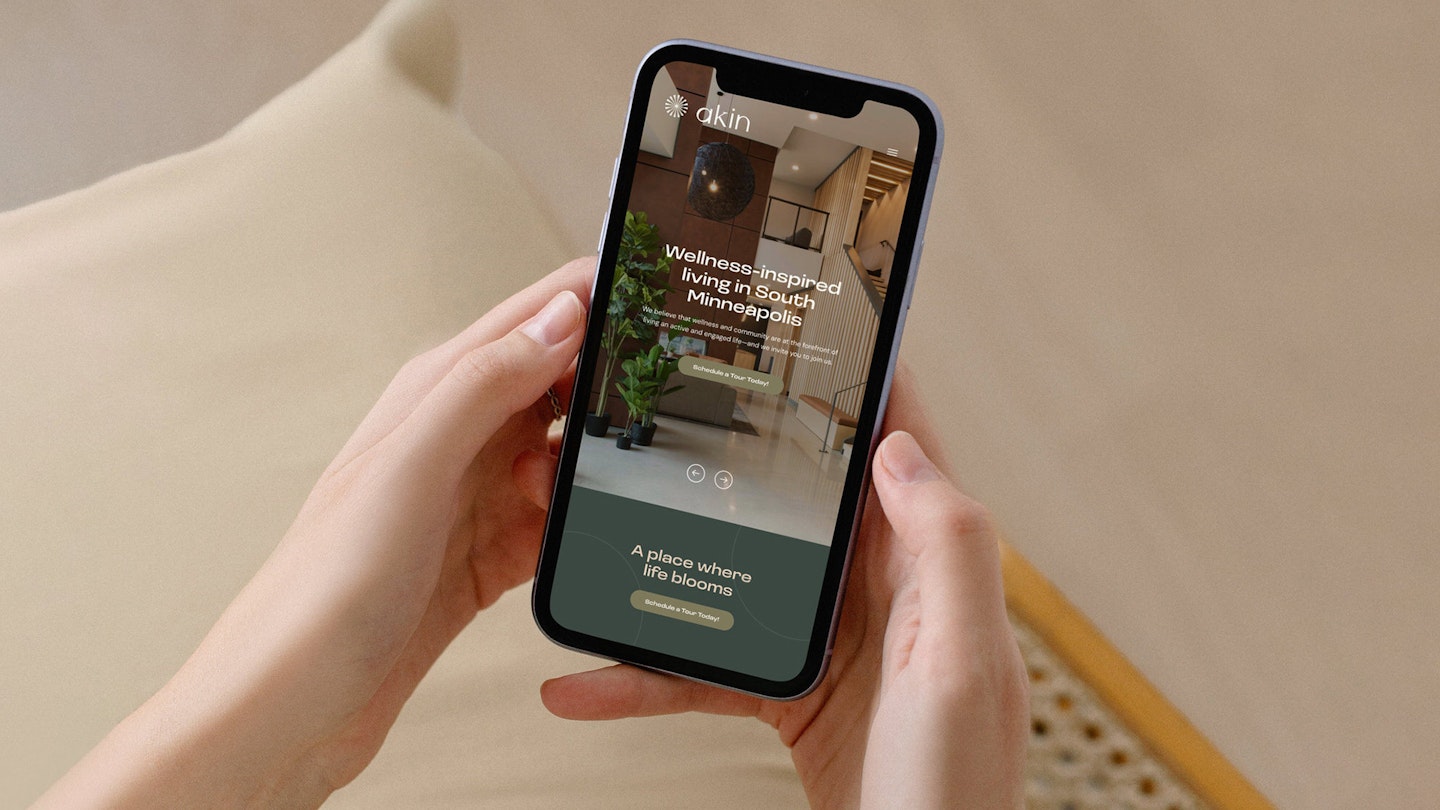
Today, the website is the cornerstone of a property's online presence, which is a pivotal element in a broader go-to-market strategy.
Building an effective digital footprint begins with a critical decision: choosing between template websites, hybrid options, or a custom-built approach.
This choice affects not only the initial impression that a property makes but also its everlasting ability to engage and convert visitors into renters.
At a high level, what options do you have?
Template websites offer a fast, budget-friendly solution for properties looking to establish an online presence quickly.
Big names like GoDaddy and Squarespace made this a popular option in the mainstream, and today, multifamily is no different, with a variety of template offerings.
These platforms provide pre-designed layouts where customization options might be limited to selecting color palettes and placing a logo on the top-left or top-middle of a design.
The allure of template websites lies in their cost and time efficiency, providing a turnkey solution that allows groups to go live with minimal effort. However, this convenience comes at the cost of uniqueness and flexibility, often resulting in a digital presence that feels generic and fails to stand out in a crowded marketplace.
Occasionally, you may come across a portfolio and notice that every website is identical except for hero image selections, content, and color differences. Those are template websites.
Hybrid websites have emerged as a middle ground, combining the cost and time savings of template solutions with a degree of customization that elevates a brand's online representation.
These modular, component-based systems offer a tailored appearance, aligning the website's look and feel with the brand's identity.
Hybrid platforms like Amplify are designed to provide custom-like finishes, allowing developers, owners, and operators to create a distinctive digital presence without the extensive development time or costs associated with fully custom websites.
The hybrid approach delivers a best-of-both-worlds solution, offering flexibility and a higher-end aesthetic at a fraction of the cost.
Overall, the investment and time commitment for a hybrid website are higher, but arguably, the output and finished product trumps templated options.
For groups seeking a completely bespoke digital experience, custom websites represent the pinnacle of online branding.
These builds are tailor-made from the ground up, offering unparalleled flexibility and specificity in design and functionality – all tailored to your unique property or company brand.
Custom websites cater to high-end projects or corporate entities requiring a unique digital footprint that fully encapsulates their brand ethos.
While this option offers the most personalized solution, unsurprisingly, it also demands a significant investment in time and resources, often making it less feasible for smaller projects or properties.
Understanding the pricing disparity among these options necessitates a deeper look into the value each brings to the table.
Template and hybrid solutions, while initially more affordable, may not deliver the long-term benefits that a custom site offers in terms of brand differentiation and customer engagement.
It's crucial for marketing leaders to evaluate their website's role within their overall strategy, considering how the platform will support their goals, enhance the user experience, and ultimately contribute to the bottom line.
For example, does a property website in a lease-up mode need to invest in a fully customized website? Likely not. However, the same may not be true for a corporate website meant to fully articulate a company's brand, ethos, culture, offerings, and more.
And, let's not forget about ROI.
A website's cost should not be assessed in isolation but rather viewed through the lens of the greater return on investment.
An effectively designed website – be it template, hybrid, or custom – should serve as a powerful tool in attracting and retaining customers, showcasing properties, and driving revenue, no matter the use case.
The decision on which path to take should align with your specific objectives, budget, and the desired impact of its online presence.
Whether opting for the efficiency of template websites, the balanced approach of hybrid solutions, or the exclusivity of custom builds, the key lies in selecting a platform that not only meets immediate needs but also supports future growth.
As we all navigate the complexities of digital solutions, remembering that the true value of a website extends far beyond its initial cost is vital.
In the end, a well-crafted website becomes an indispensable asset, enriching the brand experience and forging stronger connections with renters and customers in the ever-evolving digital world.
Which should one choose? Well, that's up to you.

Discover why boutique multifamily buildings outperform their larger competitors by focusing on curated experiences, intentional design, and emotionally resonant branding.

Discover how data-driven branding strategies can accelerate leasing, boost NOI, and turn your multifamily property's identity into a measurable performance asset.

Your brand’s reputation is built—or broken—at the leasing desk. Are you ready to unify leasing and marketing to protect it?

Remember when we all DIY dip-dyed our hair in Kool-aide and learned just because you can do it yourself doesn't mean you should? This week we're digging into the hidden costs of DIY'd branding.
A simple read in under 5 minutes, delivered to your inbox Saturday mornings.
A simple read in under 5 minutes, delivered to your inbox Saturday mornings.